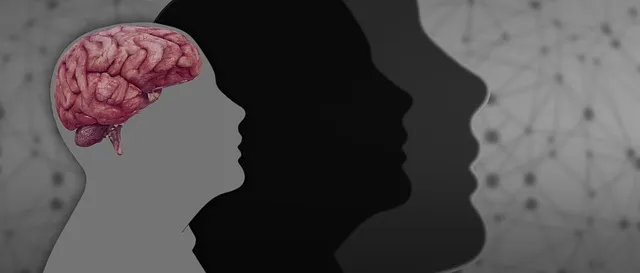Kaiser Permanente mental health Littleton's Crisis Intervention Teams (CITs) provide immediate, culturally sensitive support using tailored training, compassion cultivation, and depression prevention strategies. Their holistic Littleton Model for crisis intervention includes Mental Wellness Coaching, Anxiety Relief, and Compassion Cultivation, improving care quality and workplace culture. Comprehensive CIT training equips healthcare professionals with conflict resolution techniques, active listening, and community outreach skills to offer effective, compassionate support beyond immediate interventions. This program aligns with Kaiser Permanente's mental health priority, preventing employee burnout, fostering long-term mental wellness, and enhancing organizational crisis navigation within the community.
“Crisis intervention teams (CITs) play a pivotal role in providing immediate, effective support during mental health crises. This article explores these essential resources, focusing on Kaiser Permanente’s innovative training model, the Littleton Approach. We delve into the key components of successful CIT training programs and their profound impact on community mental health services.
From understanding team dynamics to practical implementation strategies, this guide aims to equip organizations with the knowledge needed to establish effective crisis intervention teams.”
- Understanding Crisis Intervention Teams: A Vital Resource for Mental Health Care
- Kaiser Permanente's Approach to Training: The Littleton Model
- Key Components of Effective Crisis Intervention Team Training Programs
- Benefits and Impact on Community Mental Health Services
- Implementation Strategies: Bringing Crisis Teams to Your Organization
Understanding Crisis Intervention Teams: A Vital Resource for Mental Health Care

Crisis Intervention Teams (CITs) are an essential resource in mental healthcare, particularly within organizations like Kaiser Permanente mental health Littleton. These teams, comprised of trained professionals, play a vital role in providing immediate and effective support to individuals experiencing crises. By integrating CITs into healthcare settings, we can significantly enhance the quality of care, especially for at-risk populations.
The focus on Cultural Sensitivity in Mental Healthcare Practice is crucial within these teams. Training programs equip members with the skills to navigate diverse cultural backgrounds, ensuring that interventions are tailored and respectful. Moreover, incorporating compassion cultivation practices has been shown to reduce stress and improve outcomes, fostering a more empathetic environment for both caregivers and patients. Depression Prevention strategies are also integral, aiming to identify and address depressive symptoms promptly to mitigate potential severe outcomes.
Kaiser Permanente's Approach to Training: The Littleton Model

Kaiser Permanente, a leading healthcare organization, has pioneered an innovative approach to crisis intervention training through the Littleton Model. This program focuses on equipping employees with the skills to support individuals experiencing mental health crises, fostering a culture of care within the workplace. The model emphasizes the importance of early identification and de-escalation techniques, ensuring that staff members are prepared to handle sensitive situations effectively.
The Littleton Model incorporates various elements, including Mental Wellness Coaching Programs, Compassion Cultivation Practices, and strategies for Anxiety Relief. By integrating these practices, Kaiser Permanente’s training empowers individuals to provide immediate assistance while promoting long-term mental health and resilience. This holistic approach not only benefits the employees but also contributes to a healthier and more supportive work environment, reflecting Kaiser Permanente’s commitment to comprehensive wellness solutions.
Key Components of Effective Crisis Intervention Team Training Programs

Effective crisis intervention team (CIT) training programs are meticulously designed to equip healthcare professionals with the skills and knowledge needed to handle mental health crises in diverse settings, including those provided by Kaiser Permanente mental health Littleton. A robust CIT training curriculum encompasses several key components that serve as cornerstones for successful interventions.
Firstly, these programs emphasize the importance of Conflict Resolution Techniques as a means to de-escalate tense situations and foster positive outcomes. Participants learn various communication strategies, such as active listening and empathetic expression, to build rapport with individuals in crisis and help them feel heard and understood. Additionally, Community Outreach Program Implementation plays a crucial role in CIT training by teaching professionals how to connect individuals with community resources, ensuring continuity of care beyond the immediate intervention. By combining these elements, Kaiser Permanente mental health Littleton’s CIT training empowers healthcare teams to provide effective, compassionate, and comprehensive support during crises.
Benefits and Impact on Community Mental Health Services

Crisis intervention team (CIT) training programs play a pivotal role in enhancing community mental health services, particularly in areas like Kaiser Permanente mental health Littleton. By equipping individuals with effective Conflict Resolution Techniques and empowering them to navigate high-pressure situations, these programs foster a more responsive and proactive approach to mental health crises. The impact is twofold: not only does it reduce the burden on emergency services, but it also improves community members’ access to timely support through the implementation of Community Outreach Program Initiatives.
Moreover, CIT training underscores the significance of Mind Over Matter Principles by teaching participants how to de-escalate and defuse potentially volatile situations. This not only benefits those in crisis but also strengthens the overall mental health ecosystem, ensuring that services are delivered more efficiently and effectively. As a result, communities like Kaiser Permanente mental health Littleton experience improved outcomes, enhanced safety nets, and better prepared responders who can address a wide range of mental health challenges.
Implementation Strategies: Bringing Crisis Teams to Your Organization

Implementing a crisis intervention team within your organization is a strategic move towards fostering a supportive and resilient work environment, particularly in light of mental health being a Kaiser Permanente priority. Similar to how Littleton, CO has embraced comprehensive risk management planning for its mental health professionals, your organization can benefit from structured programs that emphasize compassion cultivation practices. These teams are designed to provide immediate support during critical situations while promoting long-term mental wellness through journaling exercises and other guidance.
By integrating these strategies, organizations can enhance their ability to navigate crises effectively, ensuring the well-being of employees. This proactive approach not only prevents burnout but also cultivates a culture that values and prioritizes mental health, ultimately contributing to increased productivity and job satisfaction.
Crisis intervention team (CIT) training programs, as exemplified by Kaiser Permanente’s successful Littleton Model, play a pivotal role in enhancing community mental health services. By equipping healthcare professionals with the necessary skills and knowledge, these programs empower them to effectively navigate and de-escalate crises. The key components highlighted in this article—comprehensive curriculum, practical exercises, ongoing support, and organizational integration—are essential for creating impactful CIT training. Adopting evidence-based practices like those used by Kaiser Permanente can significantly improve mental health outcomes and foster a more resilient community.






